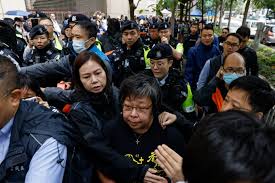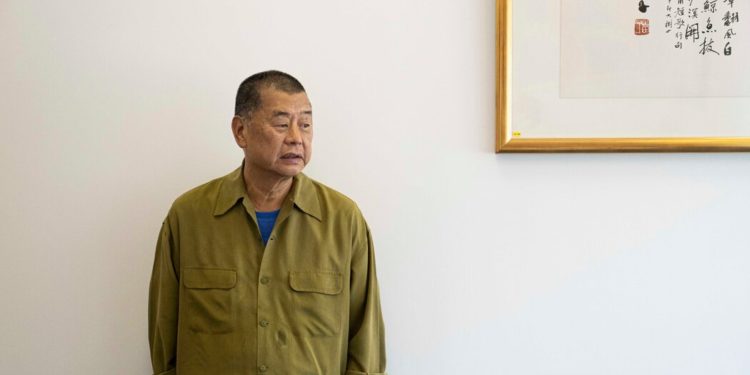by Martin Haffner, Associate Editor
Taiwan condemned China yesterday for sentencing 45 Hong Kong activists to prison, asserting that “democracy is not a crime.”
Karen Kuo, spokesperson for the Presidential Office, issued a statement denouncing the Chinese government’s use of judicial processes to suppress the political engagement and free speech of pro-democracy activists in Hong Kong.
The international community reacted quickly, with the US, Australia, and various human rights organizations criticizing the sentences as indicative of the declining political freedoms in Hong Kong since the national security law was enacted by Beijing in 2020.
Hongkongers residing in Taiwan and local civic groups held a rally in Taipei on June 9, marking the fifth anniversary of Hong Kong’s mass protests, displaying a banner featuring the images of 47 prominent pro-democracy figures.
Kuo stated that the recent sentencing violates the assurances of “50 years unchanged” and a “high degree of autonomy,” further demonstrating the failure of the “one country, two systems” framework established after the UK handover in 1997. She emphasized the shared commitment to freedom and democracy between the people of Taiwan and Hong Kong.
The Mainland Affairs Council urged the Hong Kong government to uphold its citizens’ rights, end political repression, and release those detained for supporting democracy.
The council noted that multiple incidents in recent years have negatively impacted Hong Kong’s international standing regarding democracy and human rights. It called on the Hong Kong government to safeguard its citizens’ rights, freedom of speech, and the integrity of the judicial process.
The Democratic Progressive Party also criticized the rulings, highlighting that the ongoing persecution of democracy advocates in Hong Kong underscores the authoritarian nature of the Chinese Communist Party (CCP). They argued that the forced enactment of Article 23 of Hong Kong’s Basic Law and the National Security Law has undermined democracy and human rights in the region, revealing the deceit behind “one country, two systems.”
The Chinese Nationalist Party (KMT) affirmed its support for democracy and freedom, suggesting that the ruling would not foster support for the CCP among Hongkongers. They stated that expressing opinions through nonviolent means is a fundamental right in a democratic society.
The Taiwan People’s Party (TPP) expressed strong opposition to such authoritarian repression and called on the CCP to address international concerns about its actions. In May, the TPP caucus urged the Mainland Affairs Council to develop pathways for Hongkongers to seek political asylum or business immigration, advocating for support for Hong Kong.
Hong Kong Outlanders, a support group based in Taiwan, criticized the ruling as irrational, symbolizing the demise of the rule of law and an independent judiciary in Hong Kong. They urged the Taiwanese government to continue supporting Hong Kong protesters and provide them with avenues for conditional asylum, while also promoting and ensuring the basic rights of Hongkongers in Taiwan to protect them from threats posed by the CCP.



